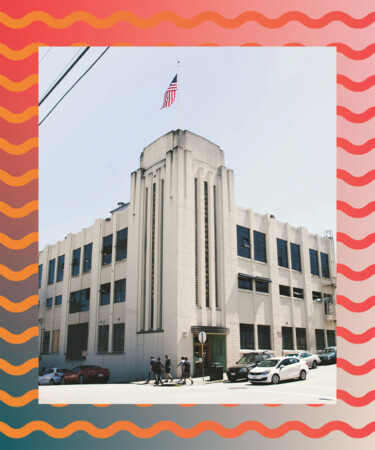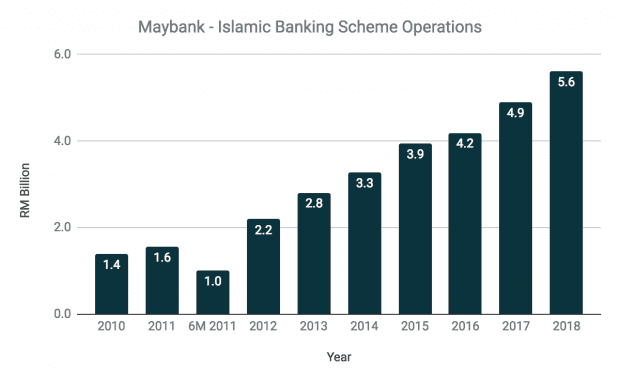The Closure Of Anchor Brewing Company: A Look Back At Its History And Impact

Table of Contents
A Legacy Brewed: The Rise of Anchor Brewing Company
Anchor Brewing's story is one of innovation, perseverance, and a lasting contribution to the craft beer landscape. Its legacy is deeply intertwined with the history of San Francisco and the evolution of American brewing.
Early Years and Innovation:
Anchor Brewing Company's story began in 1896, though its modern iteration started much later. It was revived in 1965 by Fritz Maytag, who recognized the potential of crafting high-quality beers in a market dominated by mass-produced lagers. This bold decision marked a turning point in brewing history.
- 1965: Fritz Maytag purchases the failing brewery and breathes new life into it.
- 1970s: Anchor Steam Beer, a unique California common beer, gains national recognition, becoming a flagship product.
- 1980s - 1990s: Anchor continues to innovate, expanding its offerings and establishing itself as a leader in the burgeoning craft beer scene. Their brewing techniques become highly influential.
Anchor Steam Beer, with its unique brewing process, played a pivotal role in shaping the craft beer landscape. Its distinct flavor profile and historical significance solidified Anchor's place as a pioneer.
Growth and Expansion:
Anchor's success led to significant growth and expansion throughout the latter half of the 20th century and into the 21st. It became synonymous with San Francisco, its image often appearing on postcards and tourism materials.
- Expansion into new markets: Strategic distribution expanded Anchor's reach across the United States.
- Brand recognition: Anchor became a highly recognizable brand, embodying San Francisco's unique culture and spirit.
- Product diversification: The company expanded beyond Anchor Steam, introducing a diverse portfolio of beers to cater to a wider range of tastes.
Maintaining Tradition in a Changing Market:
Despite its success, Anchor faced increasing challenges in the rapidly evolving craft beer market. The rise of numerous microbreweries and larger craft beer companies created intense competition. Maintaining market share while upholding its traditional brewing methods proved increasingly difficult.
The Factors Leading to Anchor Brewing Company's Closure
Several interconnected factors contributed to Anchor Brewing Company's closure, highlighting the complex dynamics of the craft beer industry.
Increased Competition:
The craft beer market has exploded in recent decades. The emergence of numerous successful craft breweries, some with far greater resources and distribution networks, created fierce competition for shelf space and consumer attention.
- Rise of large craft breweries: Companies like Boston Beer Company (Samuel Adams) and New Belgium Brewing significantly increased market share.
- Market saturation: The sheer number of craft breweries led to market saturation, making it more challenging for established brands to maintain their positions.
- Changing consumer preferences: Evolving tastes among beer drinkers, favoring bolder and more experimental styles, further increased the pressure on traditional brewers.
Economic Pressures:
Beyond competition, economic pressures played a significant role. The rising costs of raw materials, production, and distribution, coupled with inflation, squeezed profit margins.
- Inflation and rising production costs: Increasing prices for barley, hops, and other ingredients dramatically impacted profitability.
- Supply chain disruptions: Global supply chain issues further exacerbated economic challenges.
- Changing consumer spending habits: Economic downturns and changing consumer priorities impacted beer sales.
Changes in Ownership and Management:
Several changes in ownership and management over the years also played a part in the company's ultimate fate. While specific details are not always publicly available, the impact of these changes should not be overlooked.
- Multiple ownership transitions: Anchor Brewing changed hands multiple times throughout its history, each potentially influencing strategic decisions.
- Management decisions: Specific management decisions relating to production, marketing, or expansion may have contributed to the company's struggles.
The Impact of Anchor Brewing Company's Closure on the Craft Beer Industry
Anchor Brewing Company's closure has far-reaching implications for the craft beer industry and beyond.
Loss of a Pioneer:
Anchor played a critical role in establishing the craft beer movement. Its innovative brewing techniques, commitment to quality, and unique beer styles were highly influential, shaping the industry we know today.
- Popularizing craft beer: Anchor helped to increase the acceptance and awareness of craft beer amongst consumers.
- Influencing brewing techniques: Anchor's methods and recipes have served as a benchmark for many craft brewers.
- Promoting quality and innovation: Anchor's commitment to quality helped establish higher standards within the industry.
Ripple Effects on the Market:
The closure will likely have ripple effects throughout the market. Smaller breweries, distributors, and related businesses who worked with Anchor could experience disruptions.
- Job losses: The closure resulted in job losses for Anchor employees and potentially those in related industries.
- Market restructuring: The loss of a major player will lead to market restructuring, potentially impacting smaller breweries and distributors.
- Regional economic impact: Anchor's presence had a significant impact on San Francisco's economy, and its closure will have negative consequences.
The Future of Legacy Breweries:
Anchor's closure serves as a cautionary tale for other established breweries. It underscores the challenges facing legacy brands in a dynamic and intensely competitive marketplace. Maintaining profitability while preserving tradition and quality in an evolving market requires effective adaptation and strategic planning.
Conclusion: Reflecting on the Anchor Brewing Company's Legacy and Looking Ahead
Anchor Brewing Company's closure is a significant loss for the craft beer community. The combination of intense competition, economic pressures, and potential internal challenges ultimately led to its demise. However, Anchor's legacy as a pioneer and innovator in the craft beer world remains undeniable. Its influence on brewing techniques and its association with San Francisco culture will endure. Remember Anchor Brewing and its lasting impact on the craft beer landscape. Let's discuss the future of craft beer after Anchor's closure and honor its memory by supporting the independent breweries that continue to innovate and push the boundaries of this exciting industry. Share your memories of Anchor Brewing and let’s reflect on what this closure means for the future of craft beer. What challenges do other legacy breweries face, and how can they learn from Anchor's experience? The conversation is far from over.

Featured Posts
-
 Zvanicno Vanja Mijatovic Vise Nije Vanja Mijatovic
May 21, 2025
Zvanicno Vanja Mijatovic Vise Nije Vanja Mijatovic
May 21, 2025 -
 Trans Australia Run A Record Breaking Attempt In Progress
May 21, 2025
Trans Australia Run A Record Breaking Attempt In Progress
May 21, 2025 -
 545 Million Economic Zone Investment Facilitated By Maybank
May 21, 2025
545 Million Economic Zone Investment Facilitated By Maybank
May 21, 2025 -
 10 Episodes Of Peppa Pig And Baby Hitting Cinemas This May
May 21, 2025
10 Episodes Of Peppa Pig And Baby Hitting Cinemas This May
May 21, 2025 -
 Dexter Resurrection John Lithgow En Jimmy Smits Zijn Terug
May 21, 2025
Dexter Resurrection John Lithgow En Jimmy Smits Zijn Terug
May 21, 2025
Latest Posts
-
 Wintry Mix Of Rain And Snow What To Expect
May 21, 2025
Wintry Mix Of Rain And Snow What To Expect
May 21, 2025 -
 Drier Weather Is In Sight What To Expect
May 21, 2025
Drier Weather Is In Sight What To Expect
May 21, 2025 -
 When Will It Rain Precise Timing And Predictions
May 21, 2025
When Will It Rain Precise Timing And Predictions
May 21, 2025 -
 Check The Latest Rain Forecasts And Timing
May 21, 2025
Check The Latest Rain Forecasts And Timing
May 21, 2025 -
 Updated Rain Predictions Know When To Expect Wet Weather
May 21, 2025
Updated Rain Predictions Know When To Expect Wet Weather
May 21, 2025
